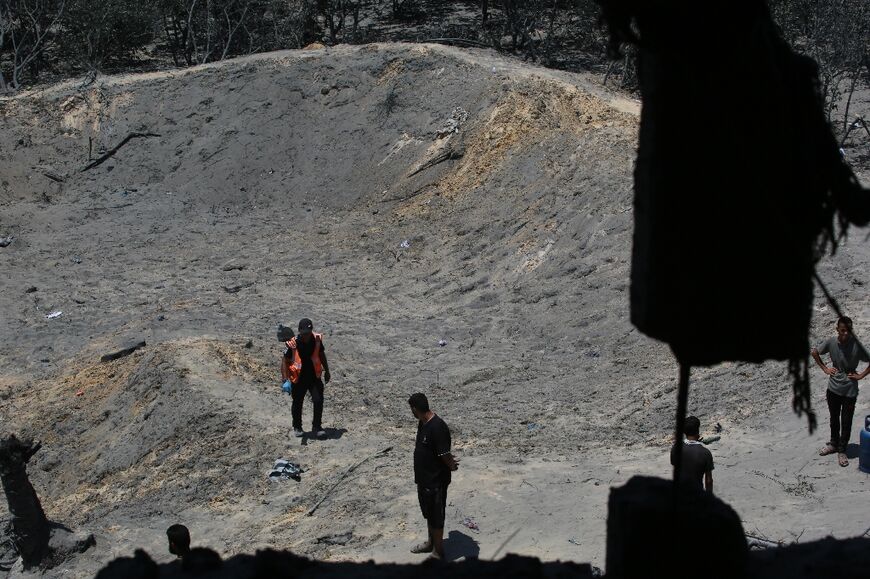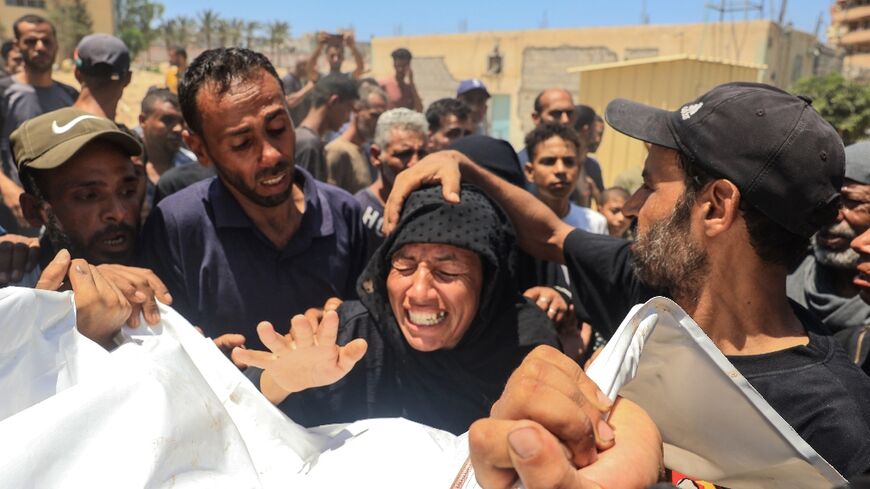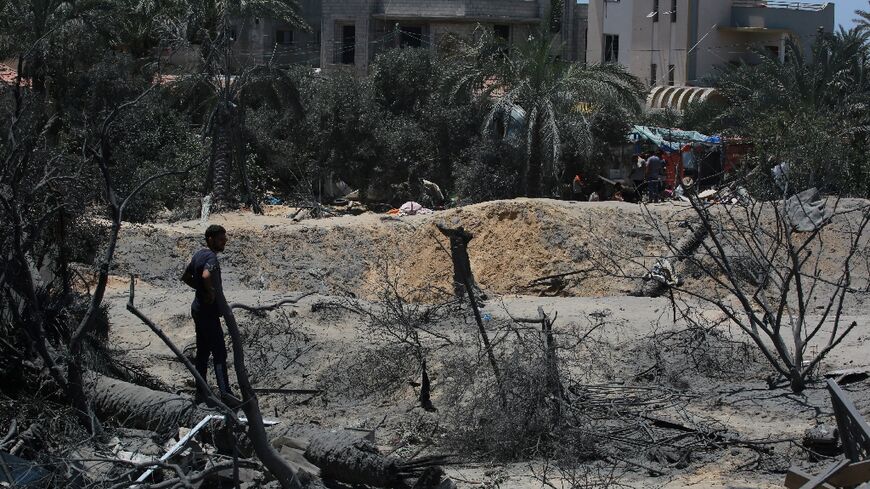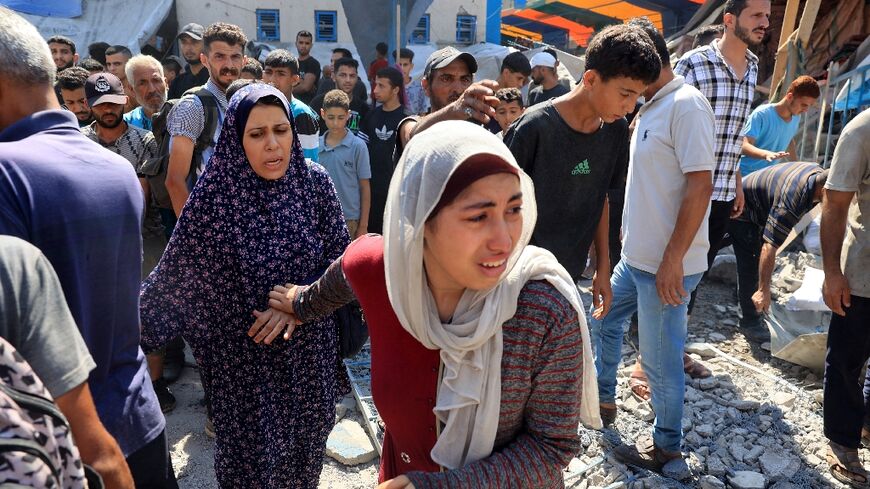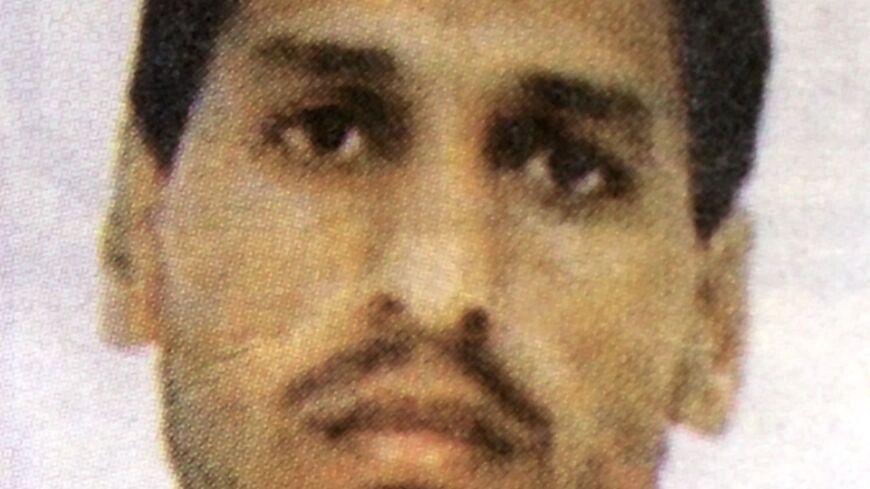'No safe place': Gazans race to collect wounded after Israeli strike

Israel had declared Al-Mawasi a "safe zone" as it pushed into Rafah near the Egyptian border, but on Saturday Palestinians raced to collect dozens of casualties from the military's latest strike.
Sirens wailed and women screamed as children were pulled bloody and unmoving from the wreckage.
"What have they done? they're children, children," one woman cried. "Seven-year-old and 12-year-old children."
Al-Mawasi, where hundreds of thousands of displaced people sought refuge, was left a chaos-strewn wasteland by one of the deadliest Israeli strikes since the start of the war.
The Hamas-run territory's health ministry said at least 90 people were killed, half of them women and children. It said another 300 people were wounded in the "massacre".
AFP could not independently confirm the toll.
Israel's Prime Minister Benjamin Netanyahu said an attack in the Khan Yunis area targeted Hamas military strategist Mohammed Deif and Rafa Salama, a brigade commander, but there was "no certainty that the two were eliminated".
Located near the city of Khan Yunis, Al-Mawasi was designated a humanitarian area after Israel in May ordered civilians to evacuate other parts of the Gaza Strip.
"We have been warning for months that there is no safe place for anyone in Gaza amid Israel's military bombardment," said UK-based Medical Aid for Palestinians, which operates health sites in the area.
It said hundreds of thousands of displaced people were sheltering in the "safe zone", which had been targeted before.
Black smoke billowed behind a wide, ash-strewn street in Al-Mawasi where bodies lay in pools of blood, some covered by sheets.
Men struggling to carry the wounded wove through those beyond help to reach ambulances waiting with open doors. Others were piled onto donkey-pulled carts.
"There are people who have lost limbs everywhere. It's a scene the mind cannot even imagine," Mahmoud Chahine said near a market struck in the attack.
Despite the Nasser Hospital reportedly saying it was at full capacity, ambulances kept arriving, carting in the wounded on orange stretchers, including a man with a towel tied around his leg as a makeshift tourniquet.
A woman outside the hospital could be heard pleading: "Please enough, enough for God's sake."
- 'No warning' -
The Israeli military said the attack against Deif "struck an open area" that "was not a tent complex but an operational compound".
"According to our information, only Hamas terrorists were present and there were no civilians," it said.
According to Netanyahu's office, he had discussed the strike with security and military officials as part of his goal "to eliminate senior Hamas officials".
Hamas called the claim that Deif had been targeted "false allegations" intended "to cover up the magnitude of the horrific massacre" in Al-Mawasi.
Gaza's civil defence agency said heavy fire was preventing its teams from reaching the "many bodies" scattered in the streets.
Mahmoud Abu Akar, an eyewitness, described repeated missiles raining down on them.
"Every time people tried to get close to rescue others, they would strike," he said.
"There was no warning at all, it happened all of a sudden."
Since telling people to relocate to Al-Mawasi in May, the Israeli military has been accused of repeatedly striking the area in deadly attacks.
In June when the International Committee of the Red Cross said 22 people were killed by shelling that damaged its office.
Returning from Nasser Hospital Saturday, Louise Wateridge, the UN agency for Palestinian refugees (UNRWA), said children had suffered life-changing injuries and people were angry there was no reprieve from the fighting.
"There is no safety here, no matter where people go," she said.
Saturday's strike came on the 281st day of the war that was unleashed by Hamas's October 7 attacks on Israel, which resulted in 1,195 deaths, mostly civilians, according to an AFP tally based on Israeli figures.
The militants also seized 251 hostages, 116 of whom remain in Gaza, including 42 the military says are dead.
Israel's military reprisal has killed at least 38,443 people in Gaza, also mostly civilians, according to data from Gaza's health ministry.


